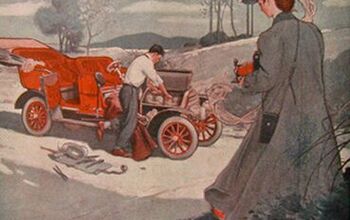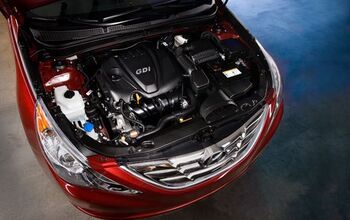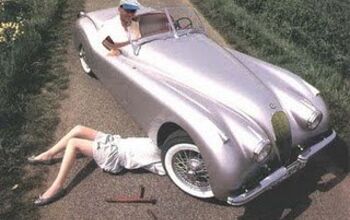TrueDelta Updates Reliability Data
We’re all aware that buying a first-year car can be risky, especially early in its production run. But how soon does the risk go away? Conversely, a new car model can initially seem problem free, only to have a common problem pop up once the cars have a few thousand miles on them. To cover both scenarios, TrueDelta promptly updates its car reliability stats four times a year, not just once a year after a half-year delay. Our recently updated reliability stats over owner experiences through the end of September 2011.
Put another way, the stats you’ll find elsewhere cover the same time period TrueDelta’s did two updates ago, back in May. How much difference can half a year make? In the case of some new Fords, quite a bit. A year ago the Fiesta had a reported repair frequency of 130 repair trips per 100 cars per year, about three times the average. Six months ago this had improved to 102, still much worse than average but heading in the right direction. With the latest update it’s 66 and within the range we consider “about average,” if still a little on the high side. Our earliest data for the 2012 Ford Focus suggested that it might similarly have a buggy launch, but after including more recent months its stat is 42 repair trips per 100 cars per year, very close to the average. Ford appears to have fixed the early bugs very quickly. But not quickly enough: other sources, using survey data from last spring, will report “worse than average” for at least the next year.
The Chevrolet Cruze appears to have suffered a similar fate. With our latest update, it’s better than average, with a score of 24. Three months ago its repair frequency was about twice as high, 51. We didn’t have enough data six months ago. Judging from other sources, the repair frequency was even higher then, perhaps around 100. Thanks to quarterly updates, though, we won’t be reporting that the car remains “much worse than average” for the next year.
This update also includes our first reliability stats for an electric car, the Nissan LEAF. Only 16 cars this time around—we’ll have far more with the next update, in February—but notably none have reported a problem that could not be fixed by updating the software (one software bug affected the air conditioning system). Will the LEAF turn out to be as reliable as the Prius, which is among the most reliable models in the survey? With 41 owners reporting for the 2011 Prius, not a single one reported a non-software repair.
We’ll update these stats again in February. The more people participate, the more models we can cover and the more precise these results will be.
Car Reliability Survey results
And for the percentage of cars that required no repairs or 3+ repair trips in the past year:
Come across something interesting? Have a question? Post it in the comments.
Michael Karesh operates TrueDelta.com, an online source of automotive pricing and reliability data.
Michael Karesh lives in West Bloomfield, Michigan, with his wife and three children. In 2003 he received a Ph.D. from the University of Chicago. While in Chicago he worked at the National Opinion Research Center, a leader in the field of survey research. For his doctoral thesis, he spent a year-and-a-half inside an automaker studying how and how well it understood consumers when developing new products. While pursuing the degree he taught consumer behavior and product development at Oakland University. Since 1999, he has contributed auto reviews to Epinions, where he is currently one of two people in charge of the autos section. Since earning the degree he has continued to care for his children (school, gymnastics, tae-kwan-do...) and write reviews for Epinions and, more recently, The Truth About Cars while developing TrueDelta, a vehicle reliability and price comparison site.
More by Michael Karesh
Latest Car Reviews
Read moreLatest Product Reviews
Read moreRecent Comments
- ToolGuy The other day I attempted to check the engine oil in one of my old embarrassing vehicles and I guess the red shop towel I used wasn't genuine Snap-on (lots of counterfeits floating around) plus my driveway isn't completely level and long story short, the engine seized 3 minutes later.No more used cars for me, and nothing but dealer service from here on in (the journalists were right).
- Doughboy Wow, Merc knocks it out of the park with their naming convention… again. /s
- Doughboy I’ve seen car bras before, but never car beards. ZZ Top would be proud.
- Bkojote Allright, actual person who knows trucks here, the article gets it a bit wrong.First off, the Maverick is not at all comparable to a Tacoma just because they're both Hybrids. Or lemme be blunt, the butch-est non-hybrid Maverick Tremor is suitable for 2/10 difficulty trails, a Trailhunter is for about 5/10 or maybe 6/10, just about the upper end of any stock vehicle you're buying from the factory. Aside from a Sasquatch Bronco or Rubicon Jeep Wrangler you're looking at something you're towing back if you want more capability (or perhaps something you /wish/ you were towing back.)Now, where the real world difference should play out is on the trail, where a lot of low speed crawling usually saps efficiency, especially when loaded to the gills. Real world MPG from a 4Runner is about 12-13mpg, So if this loaded-with-overlander-catalog Trailhunter is still pulling in the 20's - or even 18-19, that's a massive improvement.
- Lou_BC "That’s expensive for a midsize pickup" All of the "offroad" midsize trucks fall in that 65k USD range. The ZR2 is probably the cheapest ( without Bison option).


































Comments
Join the conversation
that reminds me to update my latest survey. thanks for the great work, Michael. It's great to be able to read the details of the problems as well in my car buying decision.
I see 2011 Jetta has average reliability, even close to above average. In fact the latest Jetta with below average reliability is 2007, all newer ones are either average or above average contrary to what can usually be read in the comments on this site.